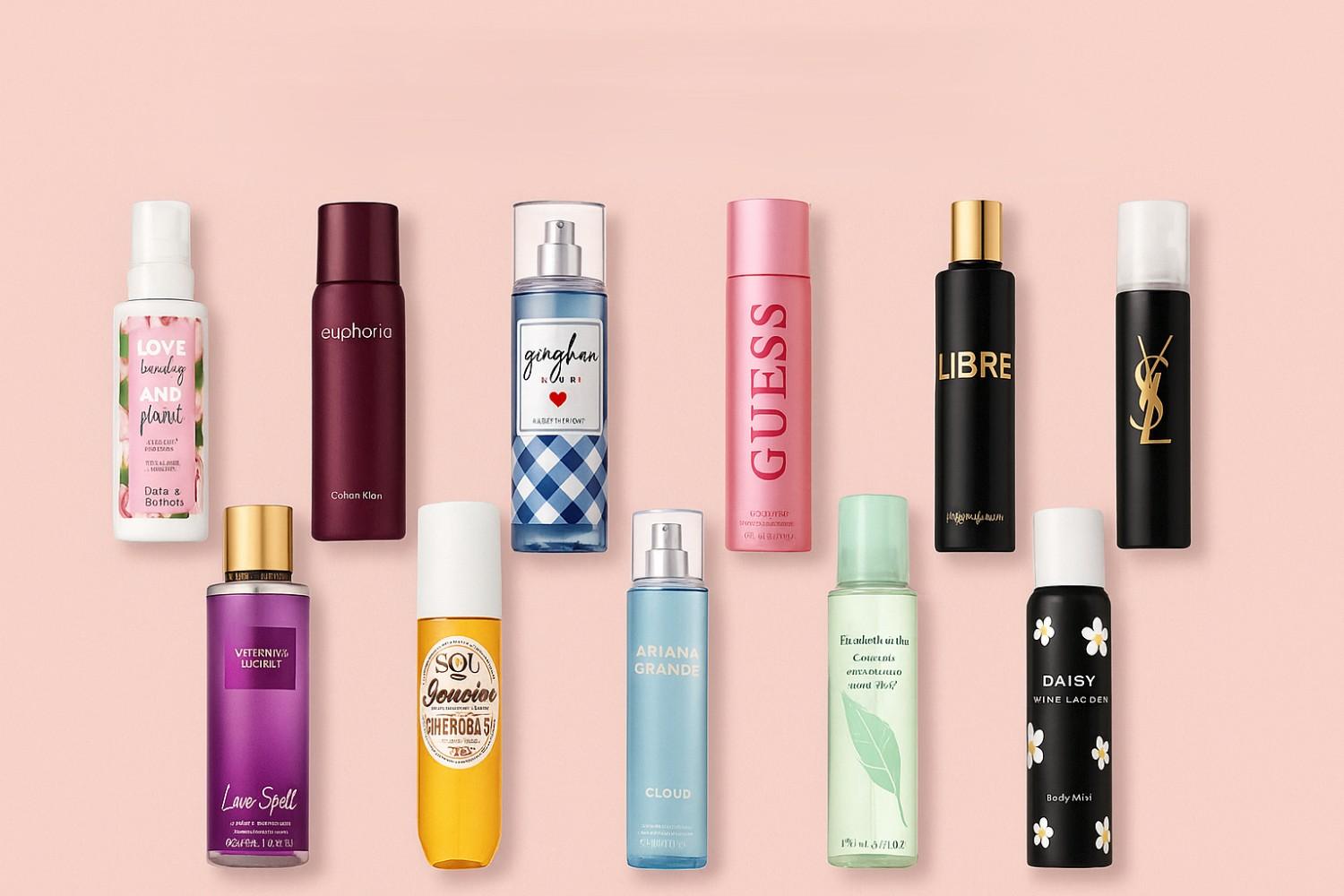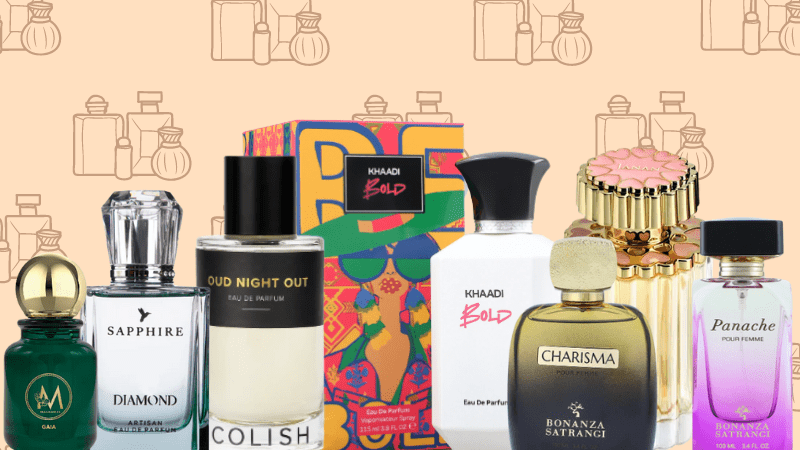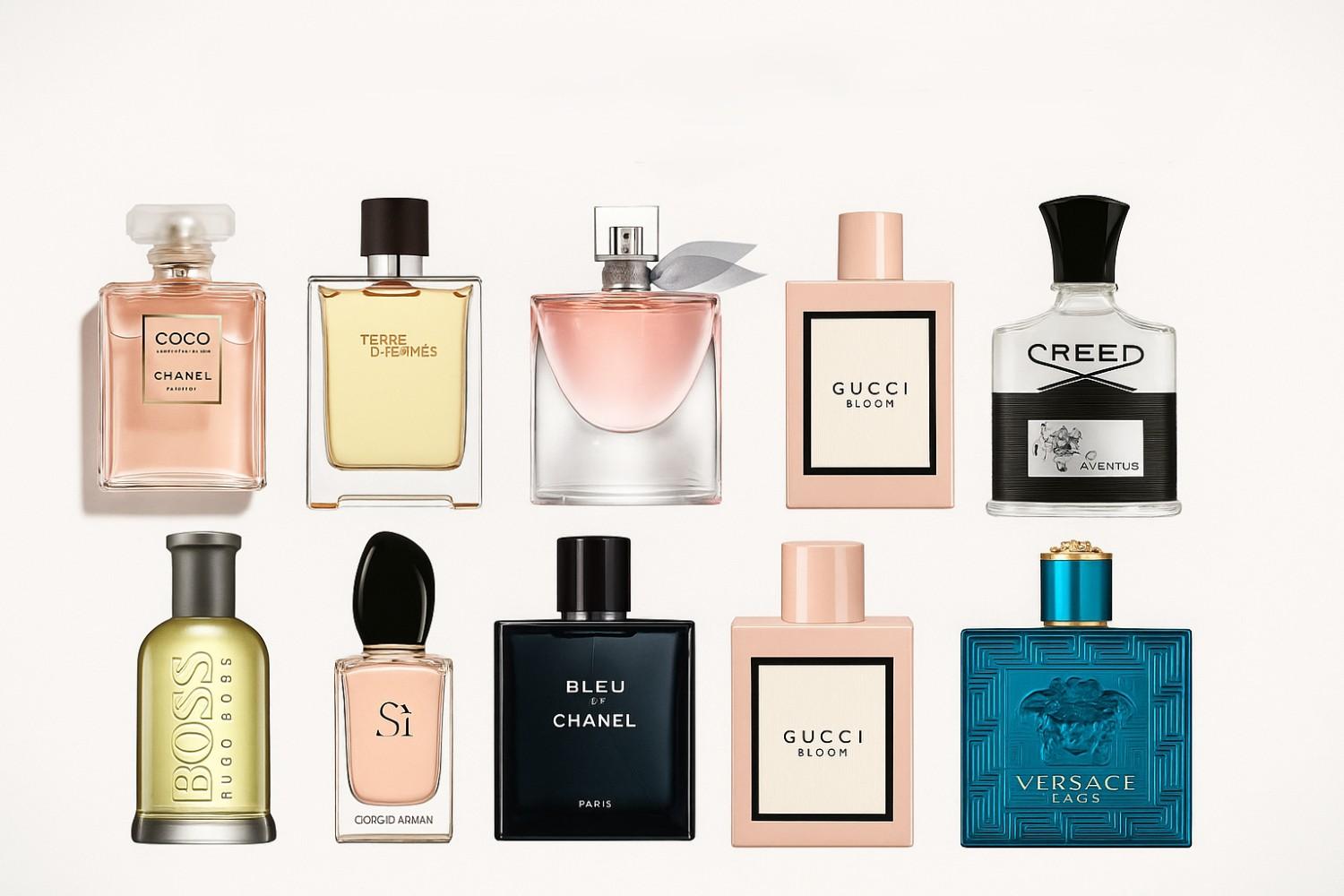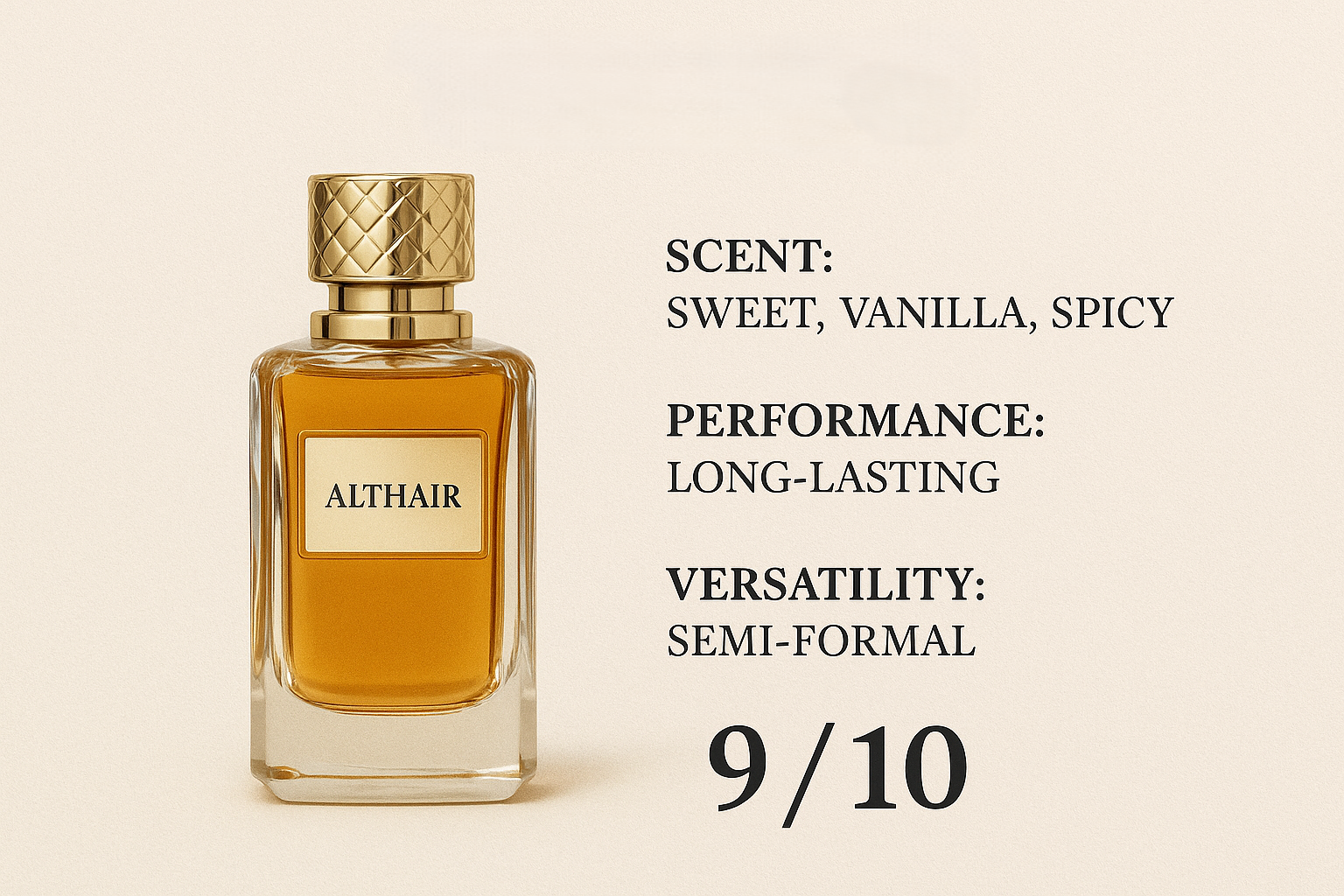EDT vs EDP vs Perfume Oils – Key Differences Explained
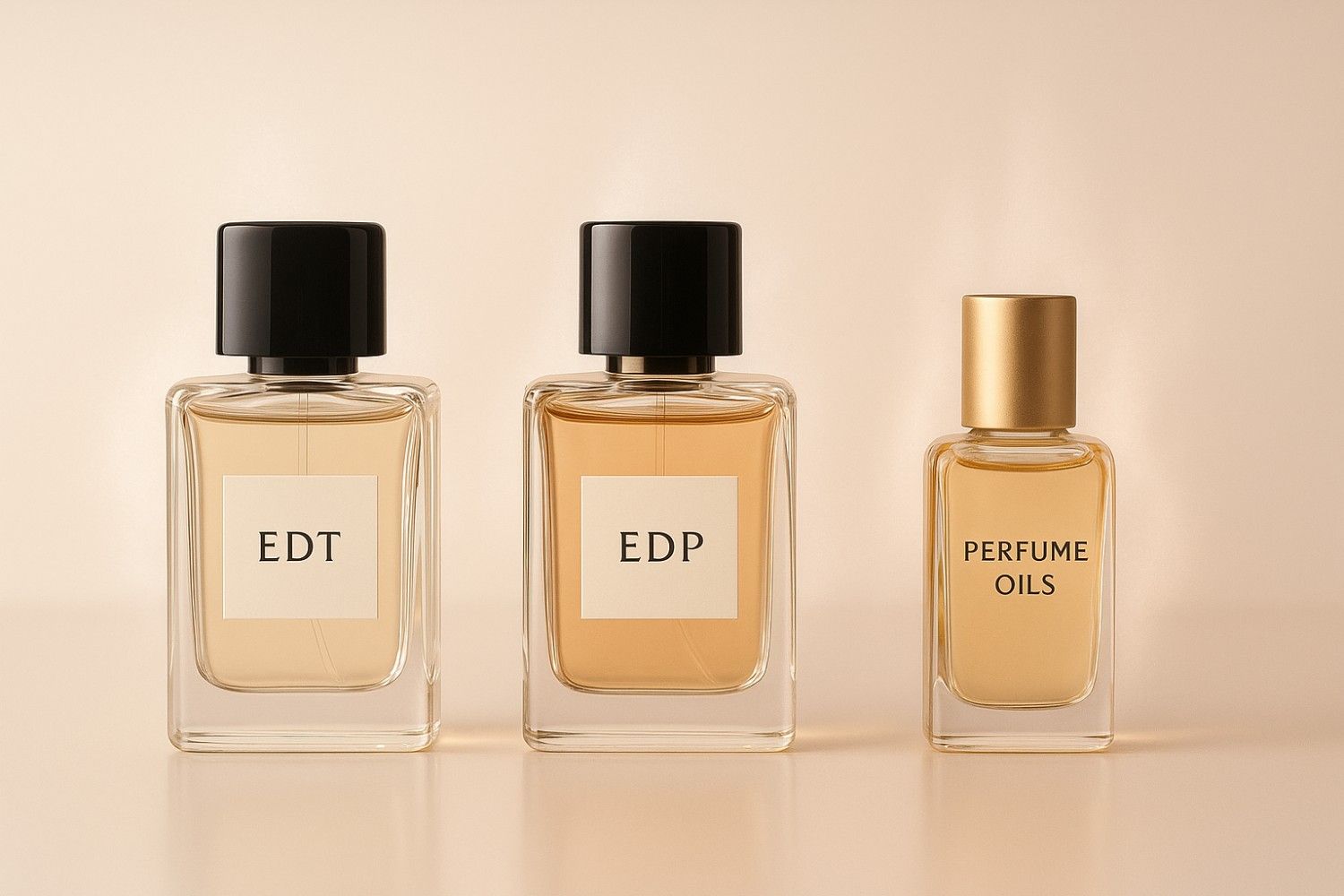
When you walk into a perfume store or browse online, one of the first things you notice is that fragrances are labeled differently. Some say Eau de Toilette (EDT), others are Eau de Parfum (EDP), and then there are perfume oils. To someone new to fragrances, these terms may feel confusing but they actually hold the key to how a perfume smells, how long it lasts, and how it performs on your skin.
Understanding the differences between EDT, EDP, and perfume oils will help you make better buying decisions, avoid disappointment, and choose fragrances that truly suit your needs and lifestyle. This guide breaks everything down for you in detail, so by the end, you’ll know exactly which type of perfume is right for you.
The Basics of Perfume Concentration
At the heart of these differences is one simple thing: concentration of fragrance oils. Perfumes are not just pure scented oils they are a mix of aromatic compounds (essential oils, aroma molecules), alcohol, and sometimes water.
The concentration of fragrance oils determines three critical aspects:
Strength – how powerful the scent smells when first applied.
Longevity – how many hours the fragrance lingers on skin or clothes.
Projection – how far the scent radiates around you (also called sillage).
In general, the higher the oil concentration, the longer the perfume lasts, and the richer the scent feels. But that doesn’t mean higher concentration is always better sometimes lighter versions are more versatile or refreshing.
What is Eau de Toilette (EDT)?
Eau de Toilette, often abbreviated as EDT, is one of the most popular and widely sold fragrance categories.
Concentration: Typically contains 5% to 15% fragrance oils, balanced with alcohol and water.
Longevity: Lasts around 3 to 5 hours on average.
Character: Light, fresh, and airy.
EDTs are often chosen for daytime wear, office settings, or hot climates because they are refreshing and not overwhelming. For example, many men’s fresh or aquatic colognes are sold as EDTs because their lightness makes them perfect for daily use.
A classic example is Acqua di Giò by Giorgio Armani, which became iconic partly because of its crisp and versatile EDT formula.
Who should choose EDT?
If you prefer subtle scents that don’t overpower others, or if you live in warm weather where heavy perfumes can feel suffocating, EDTs are a great choice.
What is Eau de Parfum (EDP)?
Eau de Parfum, or EDP, has become the most popular category in recent years. It offers a balance of strength, longevity, and sophistication.
Concentration: Usually 15% to 20% fragrance oils.
Longevity: Lasts 6 to 10 hours, sometimes more depending on skin chemistry.
Character: Richer, deeper, more complex compared to EDT.
Because of their higher oil content, EDPs evolve beautifully on the skin. The scent unfolds in layers starting with the top notes, developing into heart notes, and finally leaving a lingering base. This makes them feel more luxurious and suited to evenings, special occasions, or times when you want your fragrance to be noticed.
Popular examples include Coco Mademoiselle by Chanel or Dior Sauvage Eau de Parfum both beloved for their balance of strength and wearability.
Who should choose EDP?
If you want a fragrance that makes a statement, lasts throughout the day, and projects well without being overpowering, EDP is the ideal option.
What Are Perfume Oils?
Perfume oils are the oldest and most traditional form of fragrance, dating back centuries. Instead of being diluted with alcohol, these scents are concentrated oils, often blended with carrier oils.
Concentration: Typically between 20% to 40% or even higher.
Longevity: Can last 12+ hours, often lingering into the next day.
Character: Intimate, long-lasting, and warm.
Perfume oils don’t have the same strong initial burst as alcohol-based perfumes. Instead, they stay closer to the skin, releasing scent slowly as your body warms up. This makes them less intrusive but more personal someone will only notice it when they’re close to you.
In the Middle East, perfume oils (such as attar or oud oils) are especially popular. These oils often use rich ingredients like rose, amber, and musk, creating fragrances that are luxurious and unique.
Who should choose perfume oils?
If you want something natural, long-lasting, and personal or if you prefer fragrances without alcohol (great for sensitive skin) perfume oils are a perfect choice.
EDT vs EDP vs Perfume Oils – Side by Side
To understand the differences more clearly, let’s compare them:
Strength & Longevity
EDT: Light, lasts 3–5 hours.
EDP: Medium to strong, lasts 6–10 hours.
Perfume Oils: Very strong, lasts 12+ hours.
Projection & Sillage
EDT: Moderate projection, good for casual wear.
EDP: Stronger projection, noticeable in social or professional settings.
Perfume Oils: Minimal projection, intimate and close to skin.
Cost & Value
EDT: Generally cheaper, but requires more reapplication.
EDP: Higher price, but lasts longer and feels more luxurious.
Perfume Oils: Can be costly depending on rarity of ingredients (e.g., oud), but small amounts last a long time.
Occasion Suitability
EDT: Daytime, office, summer.
EDP: Evening, special occasions, colder weather.
Perfume Oils: Personal use, cultural settings, long-lasting daily wear.
Which is Better – EDT, EDP, or Perfume Oils?
The truth is, none of them are universally “better.” It depends entirely on your lifestyle, preferences, and even climate.
Choose EDT if you want a light, everyday fragrance that refreshes without overwhelming. Perfect for hot weather or work environments.
Choose EDP if you want a versatile, long-lasting fragrance that makes an impression. Ideal for nights out, events, and colder seasons.
Choose Perfume Oils if you want intimacy, longevity, and depth or if you love traditional, alcohol-free fragrances.
Many fragrance enthusiasts own all three types and switch depending on the occasion. For example, an EDT for work, an EDP for date nights, and perfume oils for personal enjoyment.
Common Myths About EDT, EDP, and Oils
Myth 1: EDTs are weaker versions of EDPs.
Not always. Some perfumes are designed specifically as EDTs with unique compositions, not simply watered-down versions of EDPs.
Myth 2: EDP is always better.
EDPs last longer, but sometimes you don’t want a strong fragrance. In hot weather, an EDP can feel heavy, making EDT a better choice.
Myth 3: Perfume oils are outdated.
On the contrary, perfume oils are resurging in popularity due to their natural feel, longevity, and cultural significance. Many niche brands now release oil-based versions.
Factors That Affect Longevity
Even with the same concentration, perfumes don’t perform the same on everyone. A few things can influence how long your fragrance lasts:
Skin type: Oily skin holds fragrance longer, while dry skin makes scents fade faster.
Environment: Heat and humidity can intensify projection, but may also cause quicker evaporation.
Application: Applying on pulse points (wrists, neck, behind ears) helps fragrances last longer.
Storage: Perfumes degrade if exposed to sunlight, heat, or moisture.
Expert Tips for Choosing Between EDT, EDP, and Oils
If buying just one fragrance, an EDP is the safest choice it balances strength and versatility.
For a collection, consider owning one EDT for daytime, one EDP for evening, and one perfume oil for personal or intimate moments.
Always test fragrances on your skin. The same EDT or EDP can smell completely different from person to person due to body chemistry.
Popular Examples of Each Type
EDT
Dior Homme Eau de Toilette
Acqua di Giò by Giorgio Armani
Versace Pour Homme
EDP
Chanel Coco Mademoiselle EDP
Dior Sauvage Eau de Parfum
YSL Libre
Perfume Oils
Ajmal Perfume Oils
Arabian Oud Dehn Al Oudh
Nemat Fragrances Amber Oil
Conclusion
The choice between EDT, EDP, and perfume oils comes down to more than just price it’s about your lifestyle, your environment, and how you want your fragrance to express you.
EDT is refreshing and easy for daily wear.
EDP is richer, longer-lasting, and perfect for making a statement.
Perfume oils offer intimacy, tradition, and impressive longevity.
Instead of asking which one is best overall, ask which one is best for you. By understanding their differences, you can build a fragrance collection that fits every mood, season, and occasion.

